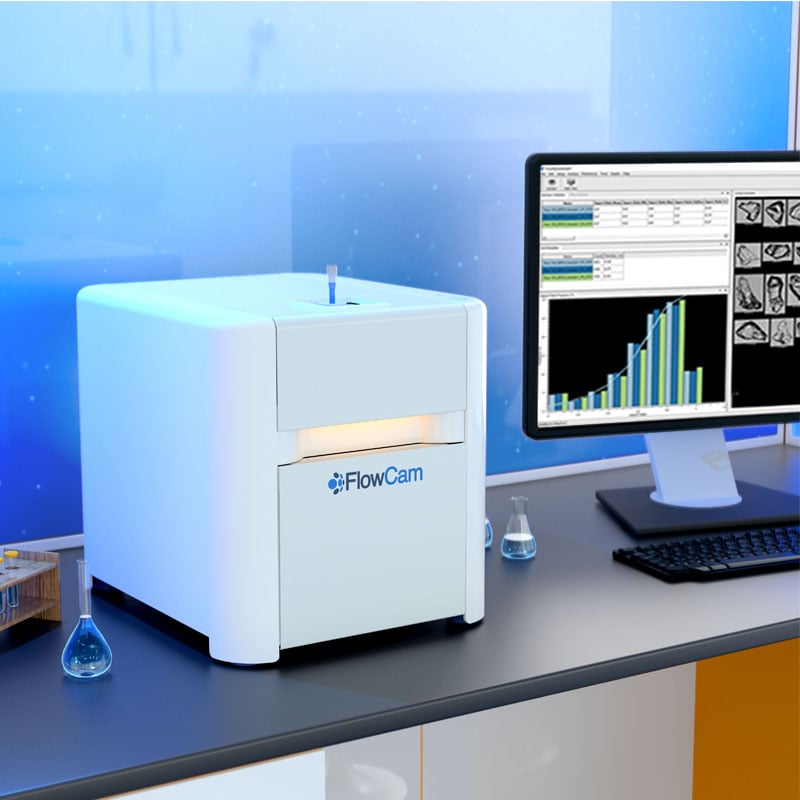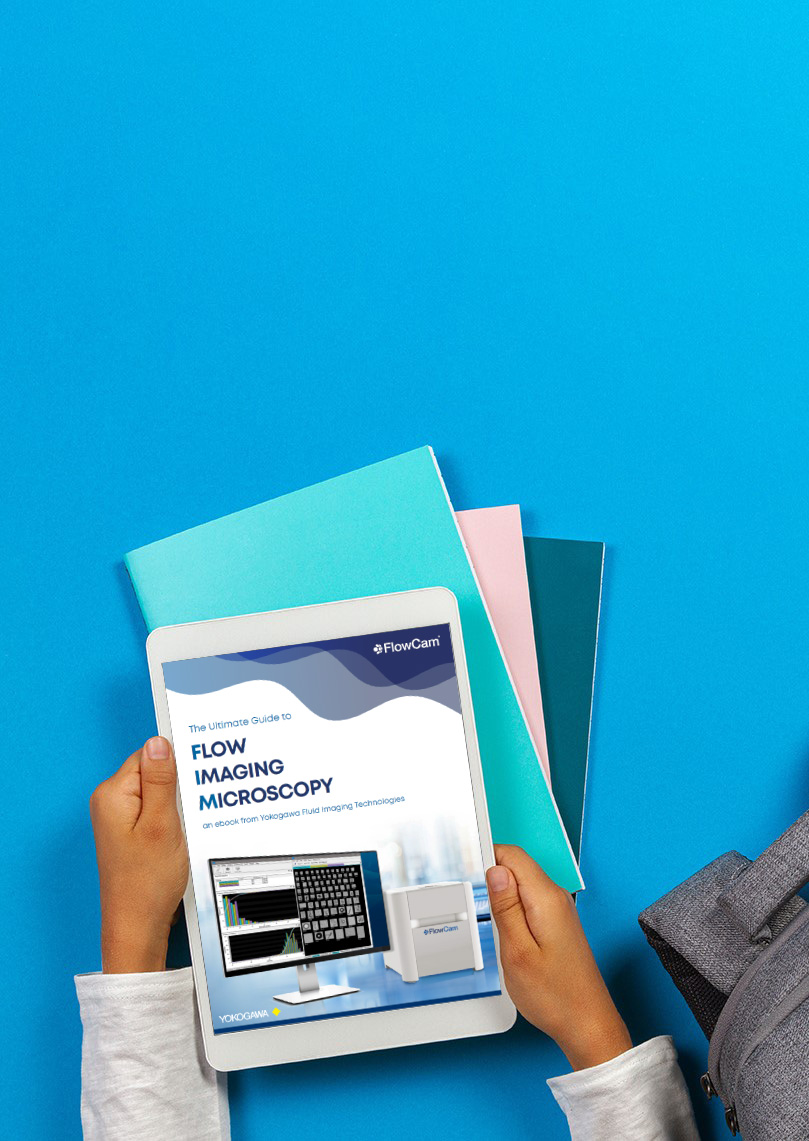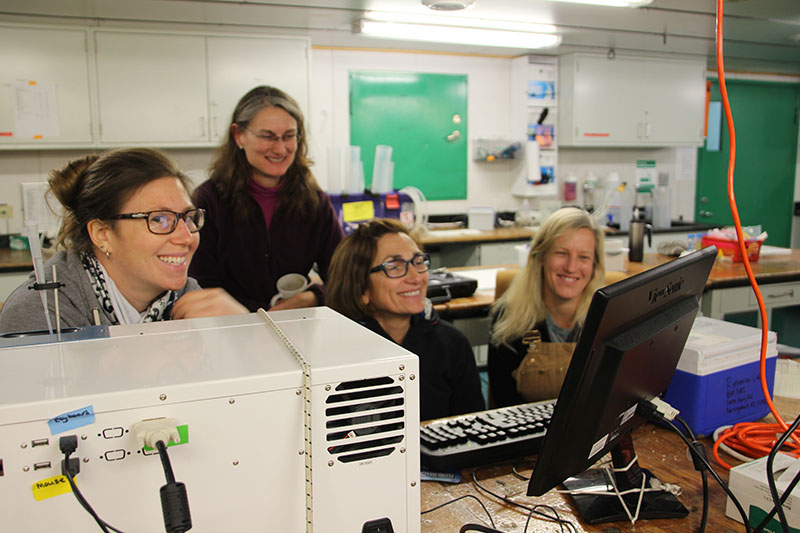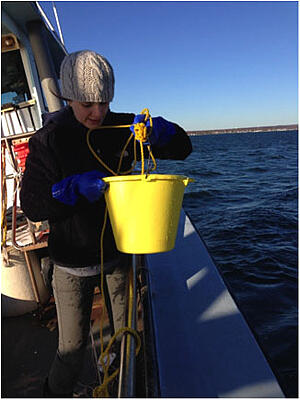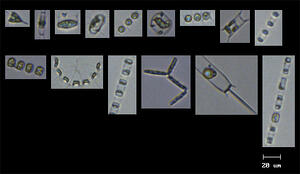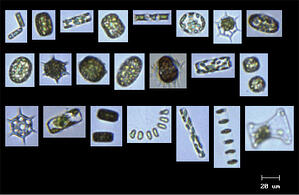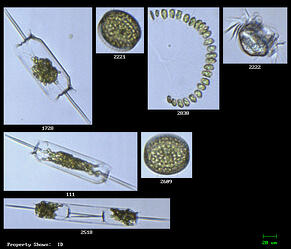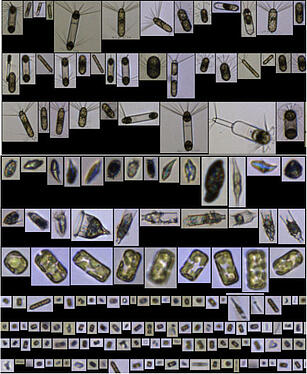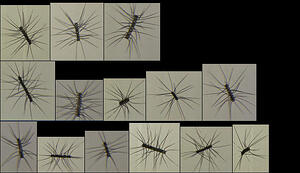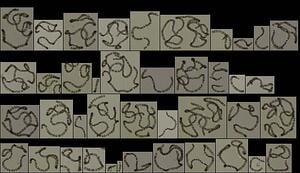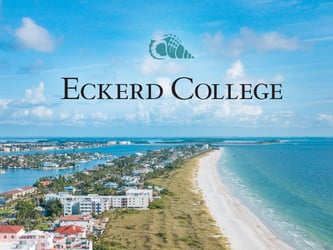Teaching and Research Application of FlowCAM® in the Study of Marine Plankton Dynamics
Research Areas in the Menden-Deuer Lab:
Research in the Menden-Deuer lab aims to improve understanding of plankton and their function in the environment. Predator-prey interactions are the central topic. While much of our research takes place in the lab, where small-scale individual processes can be investigated, we strive to relate our lab findings to observations made under realistic conditions in the coastal and open ocean.
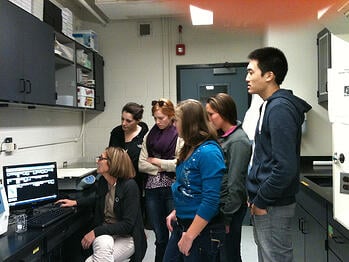 Plankton are highly diverse organisms and species identity matters: for example, phototrophic species have different nutrient requirements and differ in palatability to herbivores, herbivores have different prey spectra, tolerance of environmental conditions, and seasonality. Though species-specific differences are important for ecosystem function, including food web dynamics and biogeochemical cycles, assessment of species identity and biomass is limited by how many plankton samples can be processed. Generating these estimates traditionally uses microscopy, but microscopy is time consuming, requires a great deal of expertise, and typically yields poor sampling resolution, e.g. few depths or sampling stations are evaluated. We are currently working to make the FlowCAM an integral part of our studies of plankton assemblages and plankton food web.
Plankton are highly diverse organisms and species identity matters: for example, phototrophic species have different nutrient requirements and differ in palatability to herbivores, herbivores have different prey spectra, tolerance of environmental conditions, and seasonality. Though species-specific differences are important for ecosystem function, including food web dynamics and biogeochemical cycles, assessment of species identity and biomass is limited by how many plankton samples can be processed. Generating these estimates traditionally uses microscopy, but microscopy is time consuming, requires a great deal of expertise, and typically yields poor sampling resolution, e.g. few depths or sampling stations are evaluated. We are currently working to make the FlowCAM an integral part of our studies of plankton assemblages and plankton food web.
For example:
1. Plankton species composition and biomass have been measured in a number of studies to better understand factors contributing to the variability in the magnitude of grazing rates by heterotrophic protists and their impact on phytoplankton production both in Narragansett Bay (http://www.gso.uri.edu/samantha-decuollo) and in the open ocean (http://www.gso.uri.edu/francoise-morison). Such studies demand careful examination and quantification of prey and predator species composition and biomass, which the FlowCAM can facilitate (Figure 1).
2. We are also including the use of the FlowCAM as a support to the Narragansett Bay long-term plankton-monitoring project (http://www.gso.uri.edu/phytoplankton/). Images produced by the FlowCAM can quickly convey seasonal shifts in plankton community composition, as exemplified in the images below, and statistics generated by the software can further inform less obvious shifts, such as changes in abundance and size structure (Figures 2-5)
3. In May/June 2013 the FlowCAM was used during a cruise along the Western Antarctic Peninsula aboard the R/V Palmer. The overall objective of the cruise was to investigate the wintertime feeding ecology and behavior of krill, a keystone species in the Antarctic foodweb (http://krillcruise.wordpress.com/). The FlowCAM provided instantaneous, qualitative information on the general composition of the plankton community <200 µm and revealed the presence of non-biogenic particles (Figure 6).
Other Research: The size and shape of phytoplankton cells in mono-specific laboratory cultures was measured to understand the influence of size and shape on phytoplankton optical properties and photosynthetic capacity (http://www.gso.uri.edu/malcolm-mcfarland). The FlowCAM provided detailed quantitative information that would be very labor intensive to acquire by other means. (Figures 7-8).
Teaching Applications: The FlowCAM is used as a teaching tool in the Biological Oceanography graduate course at GSO (http://www.gso.uri.edu/ocg561/index.html). As part of the laboratory, graduate and senior undergraduate students are exposed to a diversity of instruments used in the quantification of plankton community composition and biomass. The FlowCAM technology allows us to combine the benefits of microscopy, photography, and particle statistics in order to demonstrate the large diversity, size range, and abundance of microplankton species to an audience.
|
. Figure 1. FlowCAM library of oligotrich ciliates of the genus Strombidium. |
Figure 2. GSO student collecting plankton for the NB long-term planktonmonitoring program. |
|
Figure 3. FlowCAM images of plankton species collected at different times of the year in Narragansett Bay, showing temporal variation in assemblages. (June) |
Figure 4. FlowCAM images of plankton species collected at different times of the year in Narragansett Bay, showing temporal variation in assemblages. (November) |
|
Figure 5: FlowCAM images of plankton species collected at different times of the year in Narragansett Bay, showing temporal variation in assemblages. |
Figure 6: Composite of FlowCAM Collages of phototrophic and heterotrophic Antarctic species encountered in concentrated surface samples (not scaled). |
|
Figure 7: FlowCAM collages of Chaetoceros: C. eibenii |
Figure 8:FlowCAM collages of Chaetoceros: C. socialis |
REFERENCES
The FlowCAM was purchased through support by the National Science Foundation EPSCoR Cooperative Agreement #EPS-1004057 and the State of Rhode Island. The instrument is available to users from each of the partner institutions around the state. http://web.uri.edu/rinsfepscor/
URI Graduate School of Oceanography: http://www.gso.uri.edu/
Menden-Deuer Lab:http://www.gso.uri.edu/smdlab/



